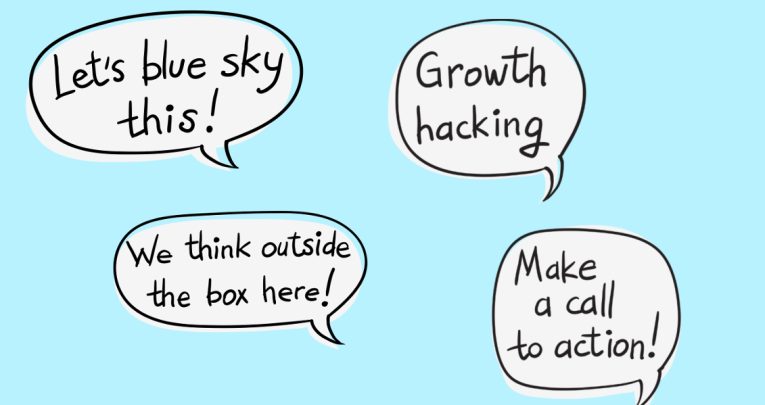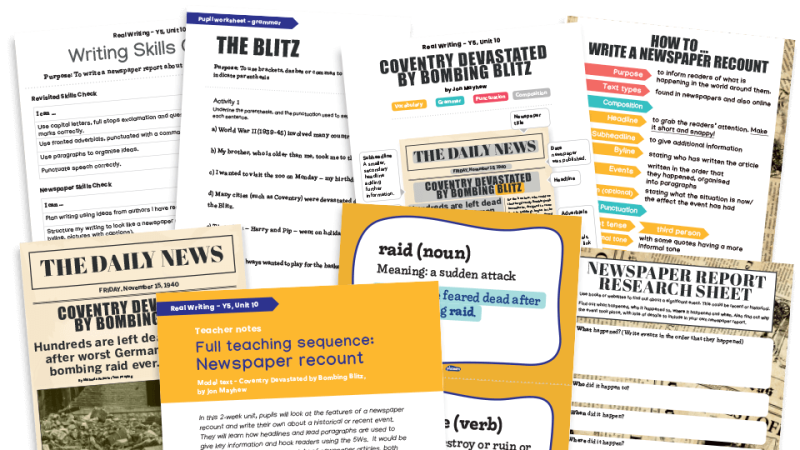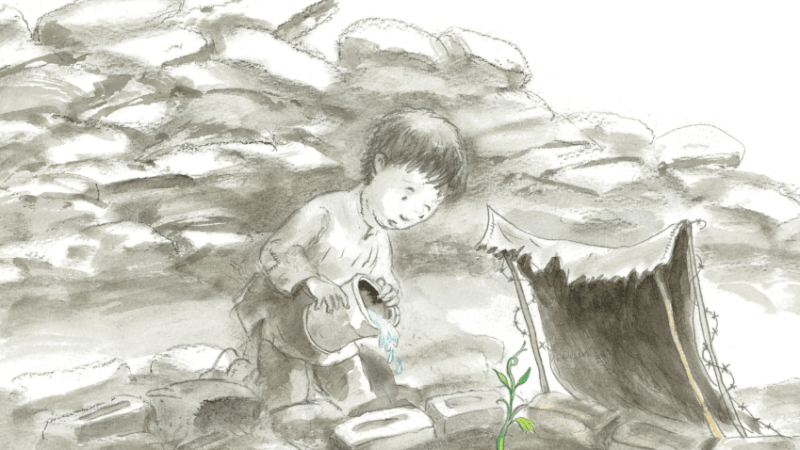Cut Out the EduJargon – Let’s Get to the Point When Talking About Education

Say what you mean and mean what you say: The year ahead needs a jargon buster

This week, I attended a Year 10 “Year Ahead” meeting. The thing that struck me most strongly was the extent to which we have systematised, bureaucratised and jargonised the education of our children.
I sat through a well-meaning PowerPoint presentation intended to demystify the new system of GCSEs for parents. Now, I work in the education sector, but even I felt like I was having to apply my learned edu-speak skills as they reeled off jargon to the group of parents hunkered down in their seats in the dark auditorium:
SLT, Key Stage 4, A*-C, expected grade, 1-9, pastoral, learning objectives, Progress 8, Attainment 8, APS, EBACC, minus scores, buckets, and target achievement ratio…god help us.
The school could at least have supplied us with a jargon buster, like this one put together by Lord Grey School in Milton Keynes, or this one put together by the Dudley Governors Association.
Laminated lingo
I also attended a training session for school leaders this week, which was fascinating and uplifting in equal measures.
It was so good to see the passion, commitment, drive and enthusiasm of a group of senior leaders dedicated to their own professional development as well as to playing their part in the collaborative challenge and support of others around the country.
One of the exercises of the day had us working in groups, using laminated lingo cards, to build a learning model.
This is where the cogs started whirring for me as an insider-outsider. This is where I rekindled my anthropologist and researcher training to be the participant observer and to examine what appeared to be unfolding.
The group leaned in, silently considered the words written on the cards and started to work together to build a ‘learning model’.
I’m thinking to myself, what the heck is a learning model anyway? They discussed, arranged the cards on the table, discussed again and slid certain ones from here to there. Learning, reflection, modelling, pace, behaviour, assessment, marking, ethos, culture, transition, key stages, critical thinking…
With each pause for discussion and each slide around of the cards on the table, I could feel my discomfort as I thought I might be slipping in and out of the ‘inner circle’ of pedagogical language.
So much terminology, but what does it all mean? The training facilitator moved from table to table, and eventually came round to ours and said, “So, taking pace for example, what is your definition of this? Have you come to an agreed definition?”
We all hesitated for a moment, realising that we had not had any discussion of the meaning of any of these words at all.
“The word pace, what do we mean by this? In what context? Pace of a lesson? Pace of the curriculum across the year? Pace of transition? Transition, what does that mean to you? Transition between key stages? Transition between activities within the lesson? Transition between lessons?”
One of the things I wondered out loud was, if we as educators, haven’t discussed and defined among ourselves what the language means, what the learning model is and what the purpose and intention of what we are doing might be, isn’t it about time this happened?
And if we have discussed it in our schools in the staff room, have we ever done this exercise with the children in the classroom? Shouldn’t we be starting from common agreed language and principles?
Jargon is everywhere
It is of course useful to capture concepts into phrases, words and ideas that are commonly understood. This is how we make sense of the world and this is how language develops and becomes useful, and at times entertaining.
I love some of the teen-lingo I learn from my kids. It is most certainly ‘fit for purpose’. In answer to “can you pick up some milk on your way home?” gets the response, “no, that is loooonnnnng”. Or “He looks nice” gets, “eww, he’s moist/crusty/clapped”
The world of work is full of the most ridiculous lingo you ever heard. Here are some favourites I have really and truly heard used:
- “What does good look like in this space?”
- “We should roadmap that issue”
- “In the technology space, that’s really not my sandpit to play in”
- “Yes but do we have the bandwidth to take this on?”
- “Let’s kick that into the long grass”
Workplace woes
Without getting all existential and “emo” about it, the linear and limited experience of education and its bureaucratised jargonisation of language is just a continuation of the central problem we have with education in general.
There is no agreement on what schooling is actually for in the first place.
And I don’t mean the level of discussion we see on Twitter with false dichotomies between ‘Trad’ and ‘Prog’ approaches to learning.
We have a model that was put in place to serve the need for a skilled and compliant workforce but we aren’t actually serving the workforce very well, it turns out.
My overwhelming sense from the Year Ahead meeting and even from my day with inspiring senior leaders from schools across the country, is that the purpose of education is ultimately to get students to pass exams so they can move on to the next stage, pass more exams and then move into the workplace and ‘succeed’.
Now, I work in ‘the workplace’ and after the educators are done with them, I receive what are described as ‘bright graduates’ into roles that on paper they are qualified to take on.
What I see as the most important thing needed to make these young people fit for the workplace is to unlearn the culture of schooling, to let go of punitive and hierarchical structures, and of linear progression.
Success in the workplace involves the ability to think critically, to problem solve, to tie together previous knowledge and experiences with research into possible knowledge and understanding – and to push this through a critical lens again to shake out any bias, habit, laziness, fear or clinging to get to the right way forward.
You need skills to influence, bring on side, provide evidence and build trust with your colleagues. And most of all, you need to build a shared language with those you are working with, which should be revisited and revised so you don’t fall into assumptions and jargon that become meaningless.
I am a great believer in stopping once in a while and going round the table to see what each person believes just happened in any given meeting, for example. But more than this, we need to stop and ask ourselves what just happened to our education system and are we all speaking the same language that can get us where we need to go?
I have had children moving through schools in this country since 2007 and there have been so many changes, initiatives, systems, methods, acronyms in the last decade. I think that something went off in my brain in that darkened room this week and I reached saturation point at that very moment. I clapped my hands over my mouth just to stop myself screaming.
I just don’t believe anyone knows what is really going on any more and I certainly am struggling to believe in the education system as it is now. From now on, I am encouraging my children to see their school experience as a social experiment.
There is as much to learn from good practice as there is from bad, and there is so much to learn about the way our society is structured through the micro-climate of a school and the office. There is much to be learned from the language we use and the meaning we attribute to it. It’s not all doom and gloom. Language is fun and in the meantime, we can always amuse ourselves and play bullshit bingo.
Penny Rabiger was an English teacher for 10 years, has since been a director at The Key service for school leaders and governors, head of membership at Challenge Partners, and now works freelance supporting a range of education organisations. She is a keen blogger, Chair of Governors at a primary school, member of the Board of Trustees at a multi-academy trust and a steering group member of the BAMEed Network.












